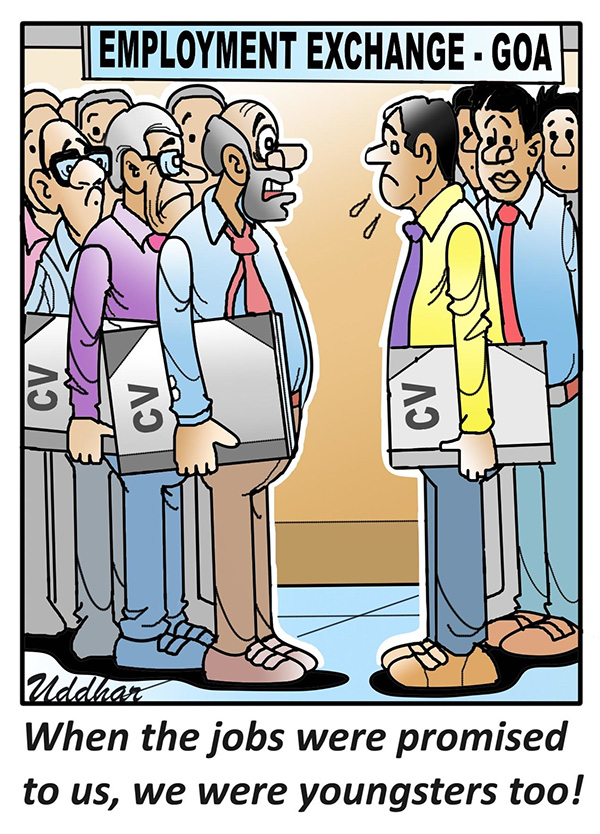Jose Maria Miranda
Much of what appears in the Press – reports, editorials, articles, opinions. letters, etc. relate mainly to matters of public interest. They are meant to be attended to by the concerned people. A mechanism is needed by which issues raised in the Press, have to be noted and taken care of. The administration prefers to be deaf and dumb to whatever is being said or written, because, it finds it inconvenient to note people’s complaints and take corrective action. Mostly, they are under the purview of the Government to do so. The days when we called the Press, the Voice of the People, are long gone and only a few read and much less the concerned do. Even the High Court takes suo motu cognizance of Press reports, but not the Government or those who should.
However, a few issues are under our control not only to note, but to effectively and efficiently rectify, for our own and other people’s benefit. Among them, are road accidents, where the administration has lesser role to play than we do. The article titled ‘Can we be a little more humane on our roads?’ (Herald, 8 February) apparently got some people thinking. I was pleasantly surprised to receive a few calls from people who felt I ought to have mentioned which are the main causes of accidents and how best to avoid them.
Besides what I said earlier, we need to think that while our families are shrinking, deaths of young people are increasing, sometimes leaving old parents or children to fend for themselves and in penury and distress. As it is, we watch helplessly younger generation born in 60s, 70s and later, vanishing in front of our eyes, of natural causes. Herculean efforts are needed, from all of us, to stop adding to these numbers, by converting our roads into pools of blood. My appeal is particularly to the youngsters to stop for a while and think what they are doing to themselves and to their devoted parents. Have they raised you up to bury you or lit your funeral pyre?
Here are a few causes, which we need to implement if we are sincere in our efforts in reducing accidents – some for us and some for Government to act: Every road must have a footpath on both sides, irrespective of how narrow it may have to be, or the road is. The pedestrian must be a priority. In some countries, like Portugal, there are one-way narrow streets, having 0.5 metre footpath, with small pipe barriers by the side. No new road should be constructed without a footpath, preferably on both sides.
2. Roads having good width for a four-lane, must have a divider for better discipline and not left for being encroached by hawkers or unruly parking. Example: part of S. Joaquim Road in Borda, Margao, where there appears to be a deliberate attempt at allowing encroachments and irregular parking.
3. Speed kills and self-accidents, with motorists losing control are not uncommon. Slowing down, at turns and crossings, is a must, which is not always possible, when at high speed. Accidents are generally less grave, when caused by slower moving vehicles
4. Parking in turns, obstructing the view of oncoming vehicles, is risky and prohibited by law.
5. Use of indicators, when changing lanes or in crossings is a must. It greatly helps orderly and smooth flow of traffic. It is observed that fast moving vehicles deliberately do not allow vehicles by the side, to shift lane, despite display of indicator. This is a dangerous trend.
6. However cautious or confident one may be, always make allowances for other people’s mistakes
7. Bikers must not overtake on the left, in turns, to avoid being crushed by the four-wheeler ahead, should it take a sharp turn.
8. While turning left, take a sharp turn and while turning right keep left, to avoid crashing on the vehicle coming in opposite direction. This is difficult, if one is at high speed
9. Speed-breakers must have visible luminous paint, at all times. They have been and are the cause of many an accident. PWD must be prompt in painting them, especially when the roads are resurfaced.
10. Ladies must sit safely on the bikes, preferably holding the bike and the rider too, if possible. They could be thrown off, if biker needs to brake abruptly. Riders carrying ladies and children must be extra cautious and not try to show off their skills.
11. Motorists must look around, before starting a parked vehicle or while opening the doors while alighting, so as not to hurt others. Buses often make abrupt stops and move away suddenly, blissfully oblivious of vehicles behind or beside them.
Motor driving schools must ensure that the learners know and understand traffic rules and not just holding and manipulating the steering. Transport Department must be strict both with driving schools, as also with those taking the driving test.
This list of do’s and don’ts cannot be exhaustive. We must follow them, as far as possible, to make roads safer for us and for others.
No matter how much we try, accidents will continue to happen, either due to our own fault or someone else’s.
At the cost of repetition, city buses or bigger sized rickshaws, waterways and an extended local railway line to transport workers and others to Panjim, Margao and Vasco and back at convenient time, will go a long way to reduce traffic load on our roads and thus considerably vehicular accidents. But the question is whether this Government will be prepared to take even a small step in this direction.
But, whether the Government acts or not, let us do our bit in reducing road accidents and lessening the pain and sorrow in our families. Let us avoid the remorse of ruining one or more families, where the victim could have been the only hope and joy.
(The author is a retired banker.)
